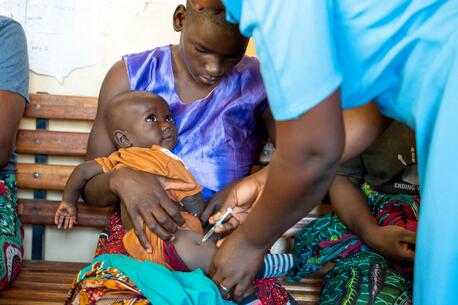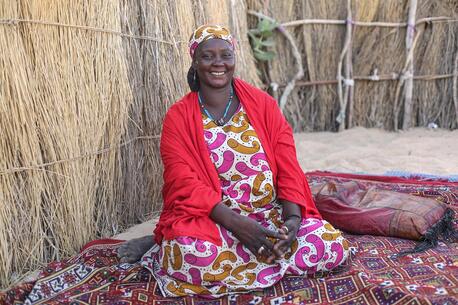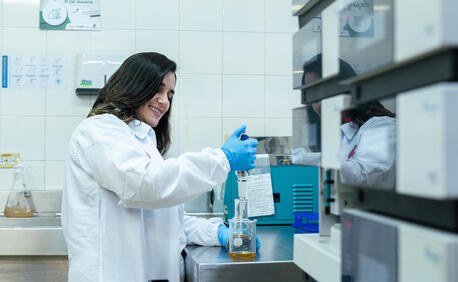
UNICEF Backs Young Innovators to Accelerate Climate Action
Two dozen promising solutions for adapting to or mitigating the effects of climate change — each one led by a young person — have been selected for acceleration through a new initiative spearheaded by UNICEF’s Office of Innovation and partners, with help from members of the global investment community.
UNICEF Innovation30: supporting young entrepreneurs tackling the climate crisis
Marybel Montoya Alvarez started working with fungi when she was a university student in Colombia. With collaborator Maria Isabel Gaviria, she has created a biodegradable, eco-friendly alternative to petroleum-based biosurfactants, the infamous components of cleaning products, cosmetics and other consumer goods. Now 31 and head of her own enterprise, Fungi Life, she is looking to scale her innovation and help create a healthier environment for children.
Marybel is one of 24 individuals selected to take part in UNICEF Innovation30 — an initiative to accelerate proven, youth-driven innovative solutions to some of the world's most pressing challenges related to climate change, the environment and sustainability, and help advance progress toward climate-related Sustainable Development Goals (SDGs).
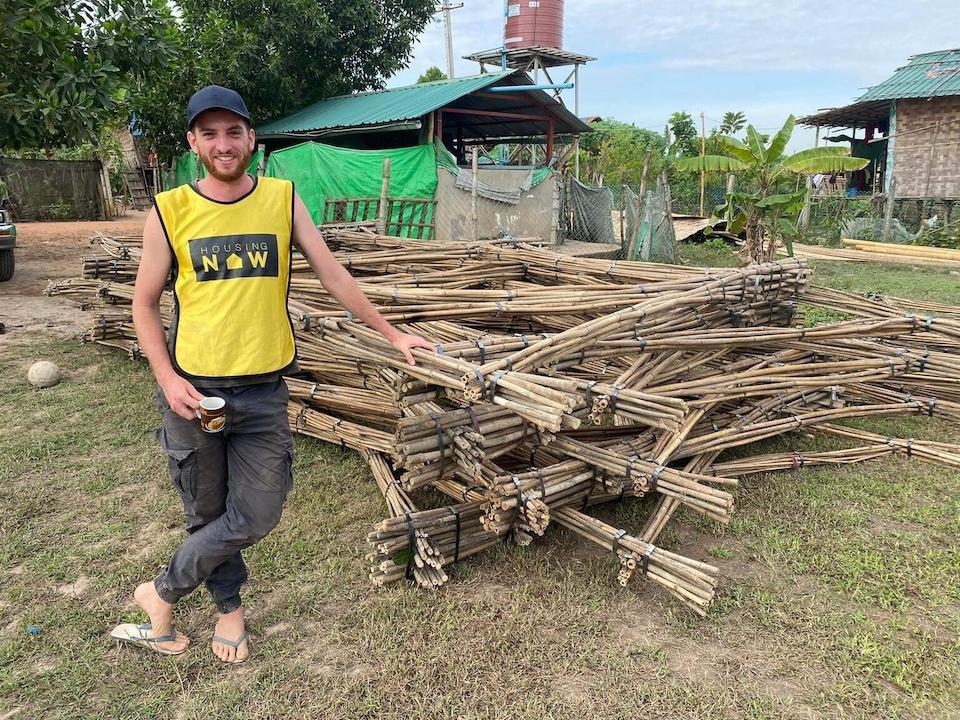
It is a mission of mounting urgency with each passing year. As UN Secretary-General António Guterres has warned: the climate time-bomb is ticking.
"We need to seize the opportunity to invest in credible innovations that can contribute to reaching our global targets,” Guterres said when the UN's Intergovernmental Panel on Climate Change (IPCC) released its most recent scientific assessment in March 2023.
During the selection process, independent climate scientists vetted over 100 proposals against a robust set of criteria, including scalability potential; a demonstrated potential to contribute to climate change adaptation/mitigation; positive impact on children; sustainability of the business; risk of doing harm; patentable innovation, market setting and competition.
The climate time-bomb is ticking. We need to seize the opportunity to invest in credible innovations that can contribute to reaching our global targets. — UN Secretary-General António Guterres
More than half of the projects shortlisted for inclusion in the Innovation30 portfolio are focused on improving waste management — an important area for UNICEF given that children are more susceptible to the negative impacts of environmental toxins related to plastic waste, solid waste, bio-waste and e-waste.
Other project focus areas include accelerating sustainable WASH services in areas most vulnerable to climate change; making food systems and diets more climate-resilient and sustainable; and improving the climate resilience of schools and health care facilities.
There is a project that focuses on decarbonizing the economy and helping to make the transition to clean energy affordable for consumers. Others seek to improve climate disaster preparedness and risk reduction.
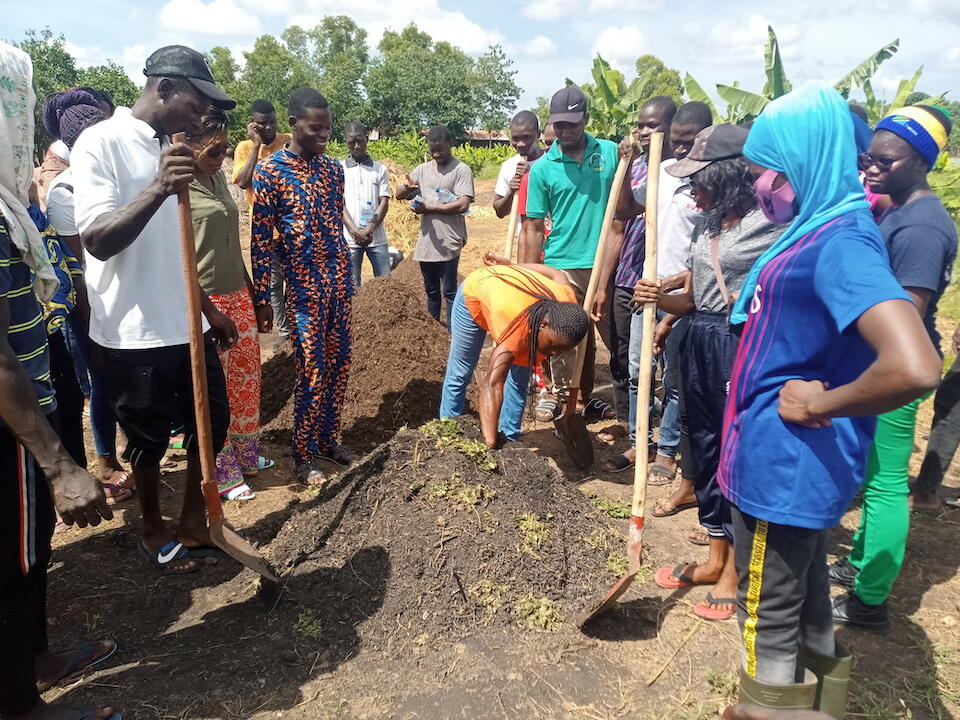
Beren Kayali, 29, developed Deploy, a compact, rapidly deployable, durable and efficient water storage system that also harvests rainwater. Recently put to use in flooded areas in Libya, it has proven well-suited to disaster relief and emergency response.
French architect Raphaël Ascoli is using bamboo to build durable, affordable and sustainable housing in Myanmar.
Yaye Souadou Fall of Dakar, Senegal, invented a safe way to recycle tires, by turning them into fuel for cement factories; the factories reduce their carbon emissions by burning tire strips at high temperatures and then re-injecting their fumes into the burning oven. Her startup, E-Cover, has recycled 812 tons of tires to date, contributing to the annual mitigation of 3,569 tons of CO2.
And Alexia Akbay created SeaGraze, a red seaweed-based dietary supplement for cows that cuts their methane emissions — a major contributor to global warming.
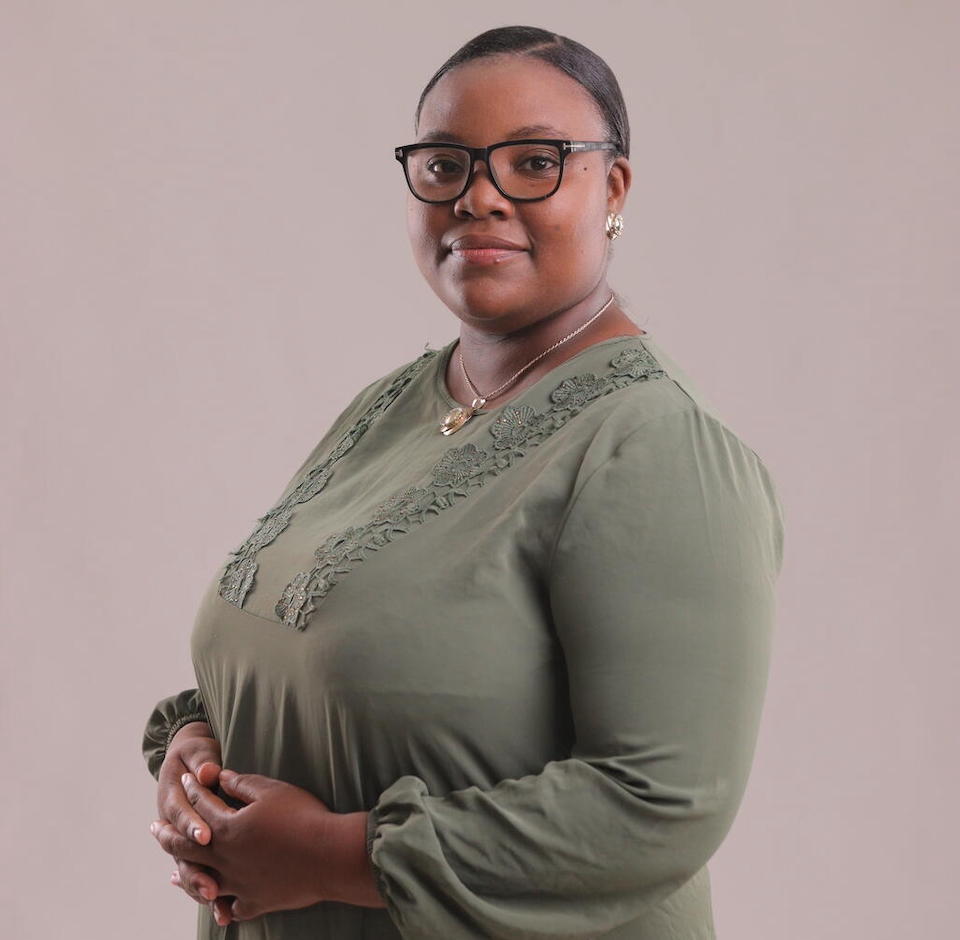
”We have many of the technologies we need to tackle climate change, but many more still need to be developed,” says James Cole, Chief Innovation Officer at the Cambridge Institute for Sustainability Leadership, part of the team that led the vetting process. “And we need smart ways to deploy those we do have both at scale and in locally appropriate ways for people, nature and the climate.”
Focusing on innovators in their 30s and younger
To be eligible, innovators had to be under 30 when they started developing their solutions. The decision to focus on young innovators was based on studies that consistently show that the most successful companies are often founded by young entrepreneurs in their thirties who nurtured and refined their ideas while in their twenties or even earlier.
Another consideration: even though young innovators have demonstrated themselves capable of driving climate adaptation and mitigation breakthroughs, up until now, very little climate financing has been directed their way.
The Innovation30 initiative seeks to rectify that by forging collaborations between young innovators and UNICEF country offices, national climate accelerators and other private investment partners — making them part of an “equitable and just green economy capital and resource ecosystem,” as Thomas Davin, Director of UNICEF Global Office of Innovation explains.
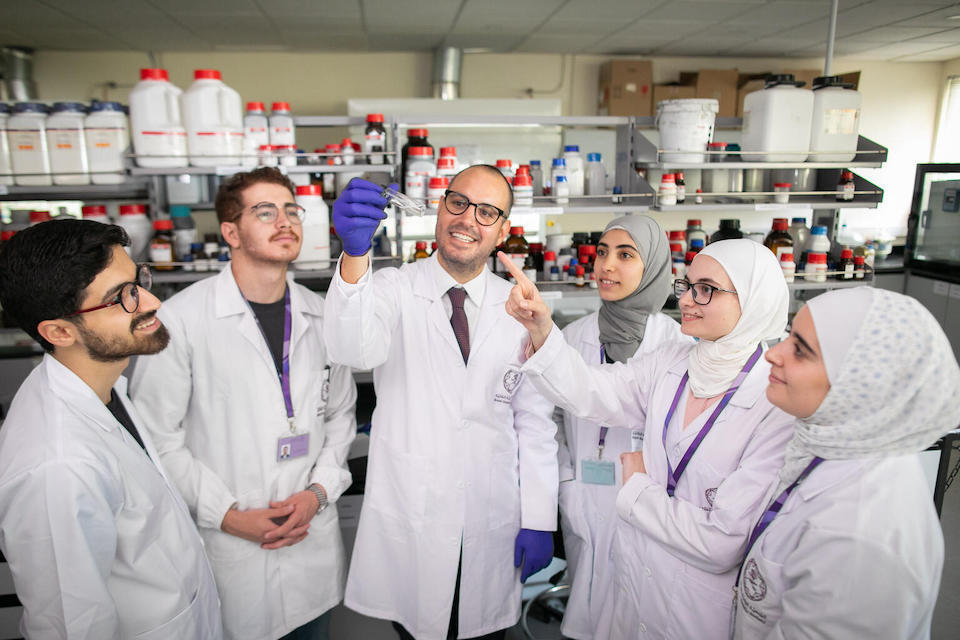
“The biggest challenge is providing opportunities for young people in their own countries to pursue creative solutions to the problems they’re facing,” says Kyle Cordova, CEO of AquaPoro, based in Amman, Jordan.
Here are a few more examples of Innovation30-backed projects, and the young people leading them.
Restoring soil health to boost farm production
Noël Obognon, 32, runs Agro-Eco Services, a company that makes organic fertilizers without harmful pesticides. Produced quickly using black soldier fly larvae, the fertilizers have been a major breakthrough in the Sahel, where arid climates and scarce rainfall have led to significant soil degradation.
By integrating biochar, an ecological charcoal powder, into its fertilizers, the company contributes to carbon sequestration, reduces methane emissions and enhances the soil’s microflora and microfauna — leading to a healthier ecosystem. Agro-Eco Services already has over 5,000 clients across Benin, Chad and Côte d'Ivoire.
A protein for environmentally sustainable aquaculture
Diana Orembe, 27, is co-founder and CEO of NovFeed, a biotech startup based in Dar es Salaam, Tanzania, that uses engineered bacteria to turn discarded fruits and vegetables — collected primarily from schools, universities and markets — into a protein-based fish food.
The product is already transforming the aquaculture industry in Tanzania. More affordable and environmentally sustainable than traditional fishmeal, NovFeed enables fish to mature faster, so they can be brought to market sooner; farmers who used it have reported a 25 percent bump in profits. Another advantage: instead of sinking like traditional food, NovFeed floats, so none of it is wasted.
Drones for bat-like data communications to support disaster response
Dan Isaí Alvarez Ruano, 27, lead electrical engineer at Aerobots, based in Guatemala, is working on an emergency response communication system that works even when internet and phones are down — by using drones equipped to transmit information over radio waves using chirp pulses, similar to the way dolphins and bats communicate.
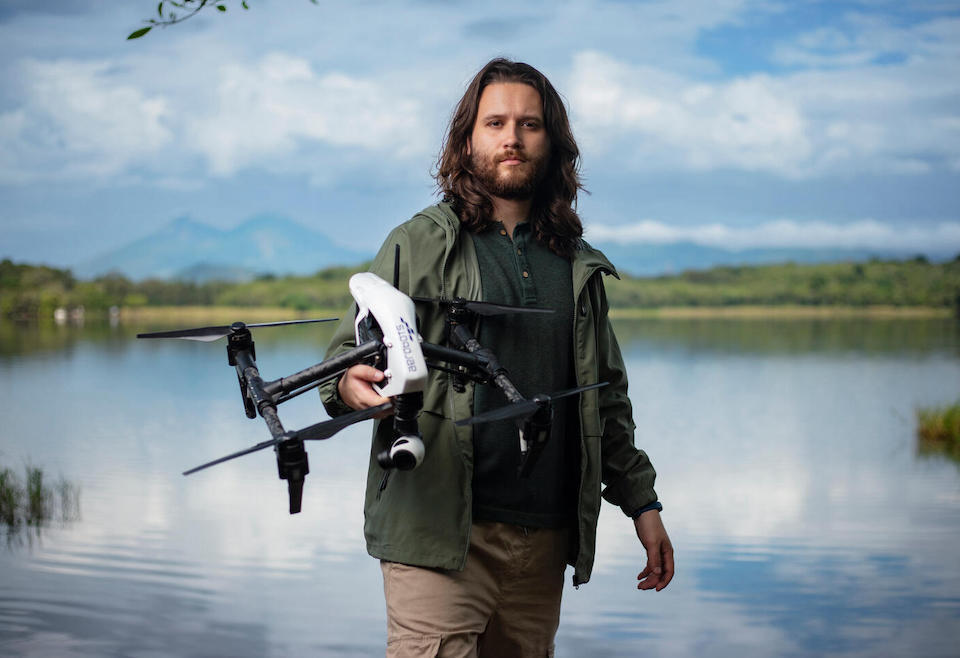
Guatemala is highly vulnerable to increasingly frequent climate disasters like hurricanes, floods and landslides; the combination software/hardware solution is designed to facilitate speedy communication between decision makers, drone operators and local volunteers, including children and young people in isolated and disadvantaged communities.
With Guatemala's National Coordinator for Disaster Reduction (CONRED) already on board, the Dronebots are on track to expand to eight regions of the country that are home to the poorest and most vulnerable communities. “We should not be risking lives to collect emergency data that saves lives at risk," Dan says. "The Dronebots will do that for us.”
UNICEF Innovation30 is closely aligned with UNICEF’s Sustainability and Climate Action Plan, a global roadmap for building low-carbon, resilient essential services for children and equipping young people to be planet champions. Learn more about how UNICEF is responding to the global climate emergency.
UNICEF Innovation30 welcomes partnership inquiries from organizations and companies looking to make an impact in the climate space. Contact the team at innovation@unicef.org
At UNICEF, innovation can take the form of a powerful tool (AI, blockchain) or a frugal, low-tech solution (handwashing stations made of salvaged materials). UNICEF’s global Office of Innovation (OOI) focuses on co-creating to discover, iterate and scale solutions and technologies that deliver impact for children. With its multidisciplinary team of over 100 professionals with expertise in human-centered design, artificial intelligence, machine learning, data science, blockchain and portfolio management, OOI collaborates across UNICEF and with a vast and ever-growing network of partners. Learn more.
With a presence in over 190 countries, UNICEF has the footprint to ensure that innovative solutions are designed and tested by, with and for end users — children and young people, parents and teachers, community health workers and government officials. UNICEF relies on voluntary donations to support this work.
Your 100% tax-deductible contribution can make a difference. Donate today.

